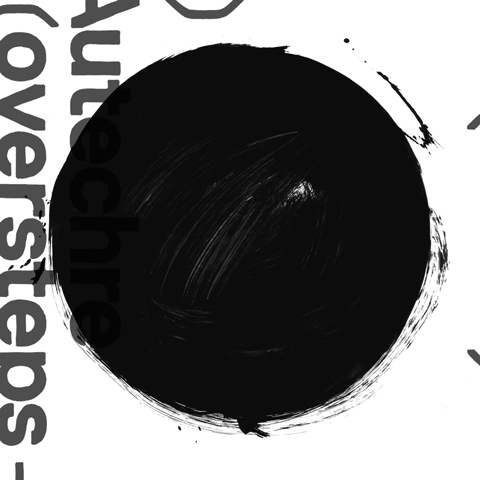Autechre’s albums are like jigsaw puzzles – very, very different jigsaw puzzles. The British duo’s first few albums were postmodern representations of idyllic landscapes, built from tangible pieces and colours, occasionally peaceful even if they never cohered into anything that made any real sense. But from the mid-’90s on, a bomb went off in their little puzzle box and they went from a few hundred pieces to a few million. Autechre’s music was mostly made of miniscule, almost microscopic shards, puzzle pieces cut arbitrarily with uneven angles – even if you managed to put them together the iridescent foil made it impossible to tell what the hell you were supposed to be looking at. Eventually Autechre started to a relent a bit, allowing a bit more structure with 2005’s Untilted, and eventually softening the edges with the unexpected Quaristice in 2008, an album that traded in the harsh corners and sharp edges of their sound for something equally unfriendly, like someone blankly staring past you and refusing to make eye contact as you attempt communication. And the puzzle was still somewhere around a million pieces, softened edges regardless.
Oversteps, then, is like a puzzle made with big, exaggerated foam pieces, a toy puzzle for a child; the contours are rounded, the pieces fit obviously together and are surprisingly malleable, able to create or fit any shape despite the one they were intended to make. If you do put them together in the intended pattern, the image you get is soothingly pastel, but just like any stereotypical children’s image, there’s something unsettling lurking, threatening to disturb the peace and overturn the idyllic setting. When you take them as separate pieces, they’re interesting but never feel whole, and put them all together and they’re simply confounding, a collection of demented lullabies to be played by possessed mobiles spinning at 500 RPM above a baby’s crib. Neither experience is exactly satisfying, and as ever Autechre is stubbornly cryptic and maddeningly secretive; if they weren’t so deadly serious about anything I’d think they might be hiding somewhere and giggling at reactions while listeners try to figure out what they’re hearing. Nonsensical titles, half-finished melodies, implacable sounds, you name it, it’s inherently Autechre and it’s all here.
For the most part, the tracks here are all made with a similar set of sounds, and they alternate between moods, either upbeat or tranquil, and all varying degrees of off-kilter. The album is even a little cohesive, with a natural flow far removed from the seemingly arbitrary sequencing of many past Autechre albums, and its dream-like quality can have the unfortunate effect of bleeding the edges. There are definite standouts, beacons in the dusky haze, however. “known(1)” utilizes what sound like string instruments, playing a mournful, contemplative (and surprisingly linear) melody. It sounds almost natural, but it’s unmistakably synthetic, the way each note is so perfectly contained, the way they’re played at unpredictable speeds as if spontaneously bubbling on the surface of boiling water. “d-sho qub” incorporates an actual beat (!) as a cheery melody tenacious plays on, weaving in between industrial hums and big black pillars of static plunging into the the muddy surface, as it slowly decays and detunes until it sounds like some sort of nightmarish circus music. “see on see” provides the obvious peak on the album, taking off immediately with sparkly meteor showers that synths begin to dry up like a dissipating cloud at the end of the rainstorm. The speed of the synths rise and fall naturally throughout the whole tune, a remarkable touch that feels too perfect to be human and too unpredictable to be computerized. Other tracks such as “Treale,” “qplay” and “ilanders” offer the closest thing to aggression on Oversteps, the former two being percussion-driven, forward-moving tracks with distorted drums and deep bass spasms, and the latter being a total curveball near the beginning of the record, turning the soothing ambient drones of opener “r ess” into prickly squalls, like being blanketed with a quilt weaved out of thorn bushes. That’s not to say the songs are by any measure simple or easy to categorize; even the billowing pockets of “r ess” are occasionally punctured by staccato pseudo-garage percussion.
It’s hard to say where exactly Autechre – almost 20 years into their career – are heading with their latest release. It’s both an unexpected diversion and a bit of predictable move, taking the slightly mellowed meandering of much of Quaristice and completely running with it into some pillowy abyss, too gentle to be assertive but never quite reaching any sort of stability or solid ground. The album almost sounds cheap at first, like it was made on chintzy equipment (but listen carefully and on a good system and those charges will be quickly dismissed), with samples that sound like pale imitations of the real thing (strings, harpsichord, bells), instead of just icy, inhuman splinters of sound. To go back to the puzzle metaphor, the album is made out of big, obvious pieces of things, their shapes cut widely and broadly. But that’s not a downside – it’s obvious how they fit together, and despite the fact that a giant foam puzzle only has a few pieces, they’re still immaculately detailed; just look into the little pores between the fibres and you’ll find a vibrant world of sound. Its warmed-over dulcet tones are broad and can be frustratingly opaque at first, but they’re equally relaxing as they are stimulating. While this may not be the best or most inspiring release in Autechre’s catalogue (and to be honest I’m not entirely sure myself what that could possibly be), it’s certainly one of the easiest to just sit down to and enjoy – and sometimes that’s just exactly what you need.

